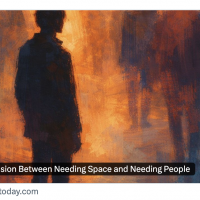Hi Dr Caplan,
I just saw this new piece on CBS and, OMG, I’m speechless. ! I have a 9 year old girl who seems to have similar behaviors. BUT I come from a family where cannabis (all drugs) are completely forbidden. And still, I am eager to explore this with your help.
- Will this work with all children with autism?
- If it does work so well, why is this not more well known and used?!
- What is the process to have my daughter involved?
- Who will know about my child’s use of cannabis? Does this follow her around?
- Do children smoke marijuana as medicine?
Thank you so much for doing what you do !
Dear Fatima,
The world of cannabis and autism, and particularly its use with pediatrics, is still brand new. The door has been opened for exploring marijuana and autism because many of these children, as you know more than most, have been unable to find relief through any of the more traditional treatment options. All of the families we meet with take the process and exploration very slowly and seriously, and we are all watching the results eagerly and very closely. For this approach, as with any medical therapy or treatment, the hippocratic oath that Dr Exelbert and I took when we first became physicians, still applies: “First, do no harm.”
To answer your questions:
1. Will this work with all children with autism?
the simple answer: I don’t know. At CED Clinic, we have treated hundreds of pediatric patients with medical cannabis, and the clear majority have found some benefit, however certainly not all. Among the types of benefit we have seen, those children with the most severe symptoms tend to have the most dramatic benefit. We have seen reduced violence among those children who are extremely violent. For many of the children with autism, we have seen increased calm and interest in communication. In many cases, we see very clear improvements in talking, stringing words together, and an increase in vocabulary. For some children, the effects seem limited to improvements with sleeping more hours at night, while the behavior and communication improvements seem less consistent. Unfortunately, many schools are still reluctant to help parents administer cannabinoids during the daytime school hours, so the system is still a challenge to navigate, and this gap in schedule to administer medication may have a real effect on the therapeutic value of a medicine that we want to have around-the-clock benefit.
An important point to make, though: The most dramatic benefits that we see are those that seem to include dedicated involvement and collaborative efforts by the parents/caretakers. Cannabis is not a magic bullet: it is a valuable tool, in a full medical regimen that requires supportive care and structure around it. While cannabis can help bring a welcome calm and serenity to a hyperactive child, or a child with extreme anxiety, without learning the tools to sustain the serenity and calm, the effects will only last as long as the medicine does in the system. It is the families who use the period of calm that come from cannabis to teach their children how to breathe, or how to self-soothe or how to stay on task, who find the most lasting results.
2. If it does work so well, why is this not more well known and used?!
Very few parents with sick children seem to know about cannabis as an opportunity. Doctors and nurses in the traditional circles are largely unaware of it, and may not even feel comfortable recommending it. The cultural stigma that has been cultivated over the last century is powerful and twisted, and the long history of cannabis consumption in human culture is almost totally forgotten, within the medical community. This seems to be changing, in our lifetimes, but it is a slow change overall, to be sure, and even slower for children, because it is human nature to be extra cautious around how we treat our most vulnerable.
It’s very common to hear parents (and doctors) worry about potential negative affects on the growing brains of children. Of course, this is a fair concern to have, given studies that have focused on discovering whether this is a real concern. Particularly recently, when studies have identified that COVID infections seem to affect children’s brains, and we know that sleep deprivation and anxiety also affect growth and development too, the last thing anyone wants is to worry about yet another potential risk. Fortunately, most of the worry about cannabis and pediatric/adolescent cognition is theoretical and studies have not been able to replicate findings where affects have been seen. Still, as with any choice for a medication, one must carefully consider potential benefits against potential risks. There is no medicine which is free of risk. Cannabis is certainly no exception.
3. What is the process to have my daughter involved?
The process at CED Clinic is basically divided into 3 steps:
- Complete an intake form, so that we can learn about you as a family, your child as a patient, and any experience you may/may not have with treatments including cannabis.
- Payment is required.
- At CED Clinic, we require follow up with all pediatric patients at least every 90 days. We invite even more frequent follow up (by email, phone, or videoconference) and these additional visits are included in the overall cost of our care.
Of course, there are more details that we can cover if/when you decide to join! Looking forward to welcoming you to the CED family.
4. Who will know about my child’s use of cannabis? Does this follow her around?
The medical cannabis program in Massachusetts is HIPAA compliant. Just as you should expect from all of your traditional medical providers, information about your medical cannabis consumption is kept completely private. Nobody will know about your child’s cannabis consumption. This includes schools, doctors, lawyers, insurance companies, friends/family, etc. There is no way that any representatives from any of these organizations could access records. Also, the program can be instantly terminated, at any point. If you want someone else to know about the use of cannabis (a school, other doctors, for example), you would have to inform them yourself.
5. Do children smoke marijuana as medicine?
No. Although the culture tends to associated smoke with the use of cannabis, this is not a recommendation we offer to pediatric patients. In fact, we don’t recommend smoking to adult patients either, but we are that much more mindful and cautious with young lungs.
The bulk of children that we see consume oils and edibles, and apply lotions or patches as their primary method of administering cannabinoids. Some children do use nebulizers (just like we sometimes administer nebs or inhalers for asthma or lung conditions) but this is not burned material, but more like misting or steaming.
Cannabinoid therapies at CED Clinic are personalized to the individual. All children have unique circumstances and individual needs We tailor recommendations and regimens to the unique needs of the patient. Some children like gummies, some prefer drinks. A few families prefer pills that they can administer with breakfast, and some find that patches can help provide the child with day-long infusion of medicine.





